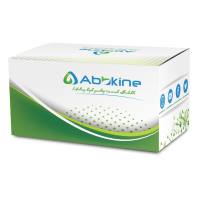Although it has been more than 20 yr since its discovery, the ras family of genes has not yet lost its impact on basic and clinical oncology. These genes remain central to the field of molecular oncology as tools for investigating carcinogenesis and oncogenic signaling, as powerful biomarkers for the identification of those who have or are at high risk of developing cancer, and as oncogene targets for the design and development of new chemotherapeutic drugs. Mutational activation of the K-RAS proto-oncogene is an early event in the development and progression of the colorectal, pancreatic, and lung cancers that are the major causes of cancer death in the world. The presence of point mutational “hot spots” at sites necessary for the activation of this proto-oncogene has led to the development of a number of highly sensitive PCR-based methods that are feasible for the early detection of K-RAS oncogene mutations in the clinical setting. In light of these facts, mutation at the K-RAS oncogene has the potential to serve as a useful biomarker in the early diagnosis and risk assessment of cancers with oncogenic Ras signaling. This chapter describes a highly sensitive method for detecting mutant K-RAS , enriched PCR, and its application to early detection of this oncogene in preneoplastic and early neoplastic lesions of the colon and rectum.






